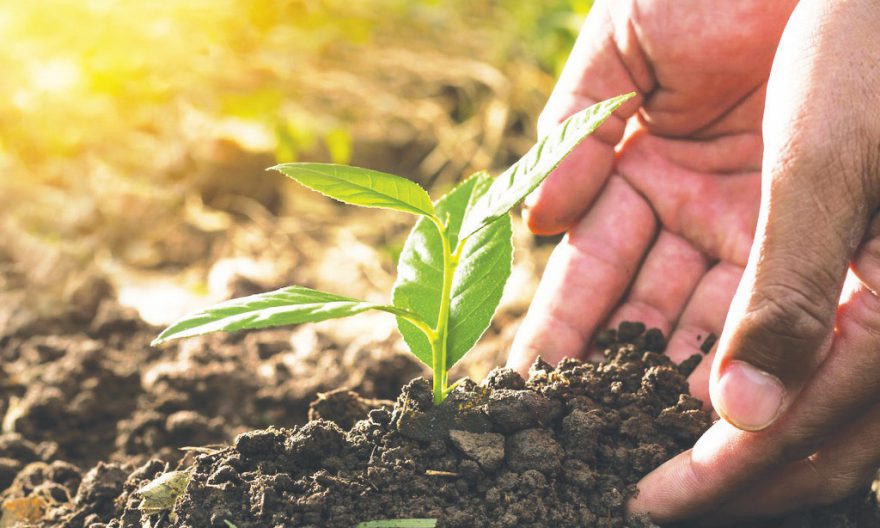
The Champions of the Earth award is the United Nation’s highest environmental honour. It acknowledges outstanding leaders from government, civil society, and the private sector whose actions have a transformative effect on the environment. Champions of the Earth inspire, defend, mobilize and act to tackle the greatest environmental challenges of this time.
The Champions of the Earth laureates are nominated by a global jury following a public nomination process. The high volume of nominations reflects how an increasing number of people understand what is possible and see the opportunities in protecting and restoring nature.
Hence, Barbados Prime Minister Mia Amor Mottley is a 2021 Champion of the Earth. She is this year’s Champion of the Earth for Policy Leadership and has spent years campaigning against pollution, climate change, and deforestation, turning Barbados into a frontrunner in the global environmental movement. According to United Nations Environment Program (UNEP) Executive Director Inger Andersen, “Prime Minister Mottley has been a champion for her passionate advocacy and policy achievements are prime examples of how world leaders can take bold, and serious action on environmental issues.”
Since she was elected as a Prime Minister in 2018, the country, under her watch, has developed an ambitious plan to phase out fossil fuels by 2030. Mottley, who has said she finds inspiration in the forests that cover nearly 20 percent of Barbados, has also overseen a national strategy to plant more than 1 million trees, with participation from the entire population.
She stressed the importance of making financing available for developing nations to adapt to climate change. For developing countries, the cost of countering climate-related hazards like droughts, floods, and rising seas stands at 70 billion US dollars per year and could rise to as much as 300 billion US dollars annually by 2030.
In order to help Barbados, adapt to the climate crisis, Mottley has spearheaded a national resilience program dubbed Roofs to Reefs. The initiative will include the use of innovative financial tools to scale up public spending on everything from reinforcing homes to restoring coral reefs, which help protect coastlines from storms.
It is well recognized that setting plans to combat climate change, putting a vision for greenery, motivating the entire population to plant tree seedlings, and so on are the best way to fight climate change. It also provides an opportunity to be awarded as Champion of the Earth-like Prime Minister Mottley of Barbados. Can’t we garner a response when we request that why hasn’t Ethiopia been selected or been awarded?
Because, since the coming into power in mid-2018, Ethiopian Prime Minister Abiy Ahmed has launched Green Legacy Initiative. The Initiative, apart from various environmental protection and conservation, aimed to see 20 billion trees planted across the nation by 2022.
According to Ethiopian Environment, Forest, and Climate Change Commission, during the 2019 plantation campaign over 23 million people and during the 2020 plantation period over 27 million Ethiopians have participated in the plantation. Even in 2021, Ethiopia has planted about 6 billion tree seedlings.
Ethiopian Environment and Forest Research Institute Plantation and Agroforestry Director and Senior Expert Dr. Abayneh Derero, told The Ethiopian Herald that Ethiopia, especially Prime Minister Abiy Ahmed, has given due concern for afforestation. Hence, he has prepared the Green Legacy initiative program which is significant to combat the effects of climate change. The Initiative also promotes the reduction of greenhouse gasses which is one of the ways to respond to climate change.
In fact, while the initiative, under the leadership of Prime Minister Abiy Ahmed, set 20 billion targets in four years, within a 3-year period, more than 18 billion seedlings have been planted across the nation. This is a milestones achievement in the planning and implementation of the Initiative which others need to learn a lot out of it.
The initiative also has serious engagement which has significant meaning for those who are working and caring for the environment. It is also educational which teaches not only the Ethiopian population also others who wish to learn the overall value of planting tree seedlings.
Taking the significance of environmental protection into consideration, the Initiative, regardless of age, educational background, sex, and so on, has brought the entire population into a common consensus. It puts also the country into the right pattern regarding the issues of greenery and combating climate change, Dr. Abayneh said.
Cognizant of the importance of green legacy activities, the Initiatives that Ethiopia has been implemented are not only limited to Ethiopia but the vision also has been expanded into neighbouring countries. Ethiopian is also ready to share seedlings with six neighbouring countries namely Eritrea, Kenya, South Sudan, Somalia, Djibouti, and Sudan.
According to the Ministry of Agriculture, the progress of the Ethiopian green legacy has expanded to eastern Africa. The campaign plans to reach out to neighbouring countries and involve people from all walks of life. Its goal is to initiate a regional effort towards a green Africa.
Apart from the neighbouring countries, the diplomatic communities that reside in Ethiopia have endorsed the green legacy initiative program and have planted tree seedlings. They also express their keenness to support the program. Among others, Israeli Ambassador to Ethiopia Alelign Admasu, Czech Ambassador to Ethiopia Pavel Mikeš, Norwegian Ambassador to Ethiopia, Merete Lundemo, the Russian Ambassador to Ethiopia Evgeny Terekhin, Former Chinese Ambassador to Ethiopia, Tan Jian are among others who have participated in the plantation program. Based on the collaborative efforts the country around 80 percent of trees planted so far had survived.
However, Ethiopia has been vigorously committed to combating climate change and the Green Legacy effort was just as deserving of attention as other events in Ethiopia, but the international communities are not ready to accept or recognize the efforts of the country. Even United Nations Environment Program (UNEP) confirmed that more than 350 million trees were planted in 12 hours, but Ethiopia was not on the list. This ignites the question of why Ethiopia?
According to Dr. Abayneh, Ethiopia’s green legacy initiative efforts have local, regional and global impacts. It brings massive environmental impact in fighting deforestation, recovering degraded land, and so on. Nevertheless, these efforts haven’t been communicated and promoted well.
Ethiopian green development strategy has been also covered by local issues instead of communicating the success of the story. The achievement of the framers, the success of tree seedlings, the socio-economic benefits, the conservation value of nature, the local, regional, and global impact of green legacy initiatives are not addressed to the entire population and the international communities.
The green legacy task has a positive impact and alters the environment we live in by moderating the climate, improving air quality, and it’s also a huge benefit for our health as well. It is also significant to preventing flooding, food insecurity, environment-related conflicts, and other adverse.
Restoring the country’s green cover, eliminating erosion and pollution, reducing conflicts arising due to environmental degradation and reduction of natural resources, and measures to support the agricultural sector and economy.
Ethiopia, therefore, has to be taken as a model since the country has taken bold leadership in climate action. As part of the Green Legacy Initiative, which was launched in 2019, 20 billion trees had planted across the country over four years. 4 billion tree seedlings had planted in 2019, including the famous record-breaking 353 million seedlings in one day, while in 2020, 5 billion seedlings had planted. In 2021, 6 billion tree seedlings were planted. These all efforts indicate that the next Champion of the Earth would be Ethiopia and the award will be expected from Barbados into Ethiopia.
BY EPHREM ANDARGACHEW
THE ETHIOPIAN HERALD DECEMBER 22/2021





